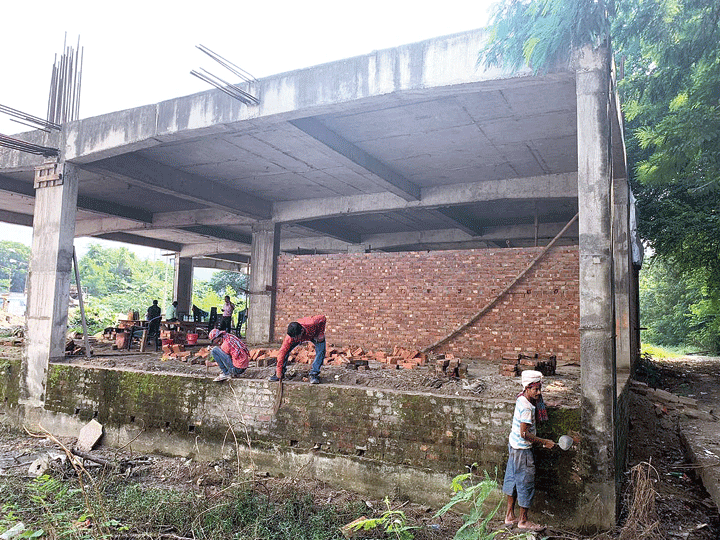Calcutta University has resumed construction of a workshop for engineering students, in the absence of which the university was unable to increase the number of BTech seats for next year.
Vice-chancellor Sonali Chakravarti Banerjee said the workshop would be ready by July 2020, when the first-year classes are expected to begin.
The university had sent a team to its technology campus in Salt Lake, where the first-year BTech classes are held, to take stock of why the construction was stuck despite repeated sanction of funds for the project.
“Our engineer has given me an update about the status of work. The workshop is expected to be ready by July 2020,” vice-chancellor Chakravarti Banerjee said.
Students are taught engineering mechanics and drawing at the workshop in the second semester.
In the absence of a workshop on the technology campus, students have to travel to Ballygunge science college twice a week to use the facility there.
Metro had on October 28 reported that Calcutta University (CU) had failed to increase the number of BTech seats because of infrastructure inadequacies despite receiving development funds.
The university has informed the joint entrance examination board that it will admit students to 231 seats next year notwithstanding a decision to raise the number of seats to 306.
“The All India Council for Technical Education (AICTE), has been repeatedly advising us to increase the intake in each discipline, but owing to the absence of an adequate workshop we cannot do anything. It’s a mystery that a top-ranking university... cannot offer its engineering students the basic infrastructure,” a professor at Rajabazar science college said.
CU’s lone engineering workshop was set up at Ballygunge science college in 2000.
Students of the electrical engineering, electronic and computer engineering, computer science and engineering, information technology, optics and optoelectronics, chemical engineering, chemical technology, and polymer science and technology have to travel from Salt Lake to Ballygunge to use the workshop.
Jute and fibre technology has a workshop of its own and so is able to take in 66 students, unlike other engineering disciplines. The electrical, electronics and communication and chemical engineering courses at CU have 8, 17 and 20 seats, respectively.
A university official said each discipline should have at least 40 seats.
“Whenever we approach the AICTE to renew the affiliation of the course, the apex body that regulates engineering education across the country advises us to raise the seat count. They are not used to giving affiliation to such a small number of seats,” an official said.











